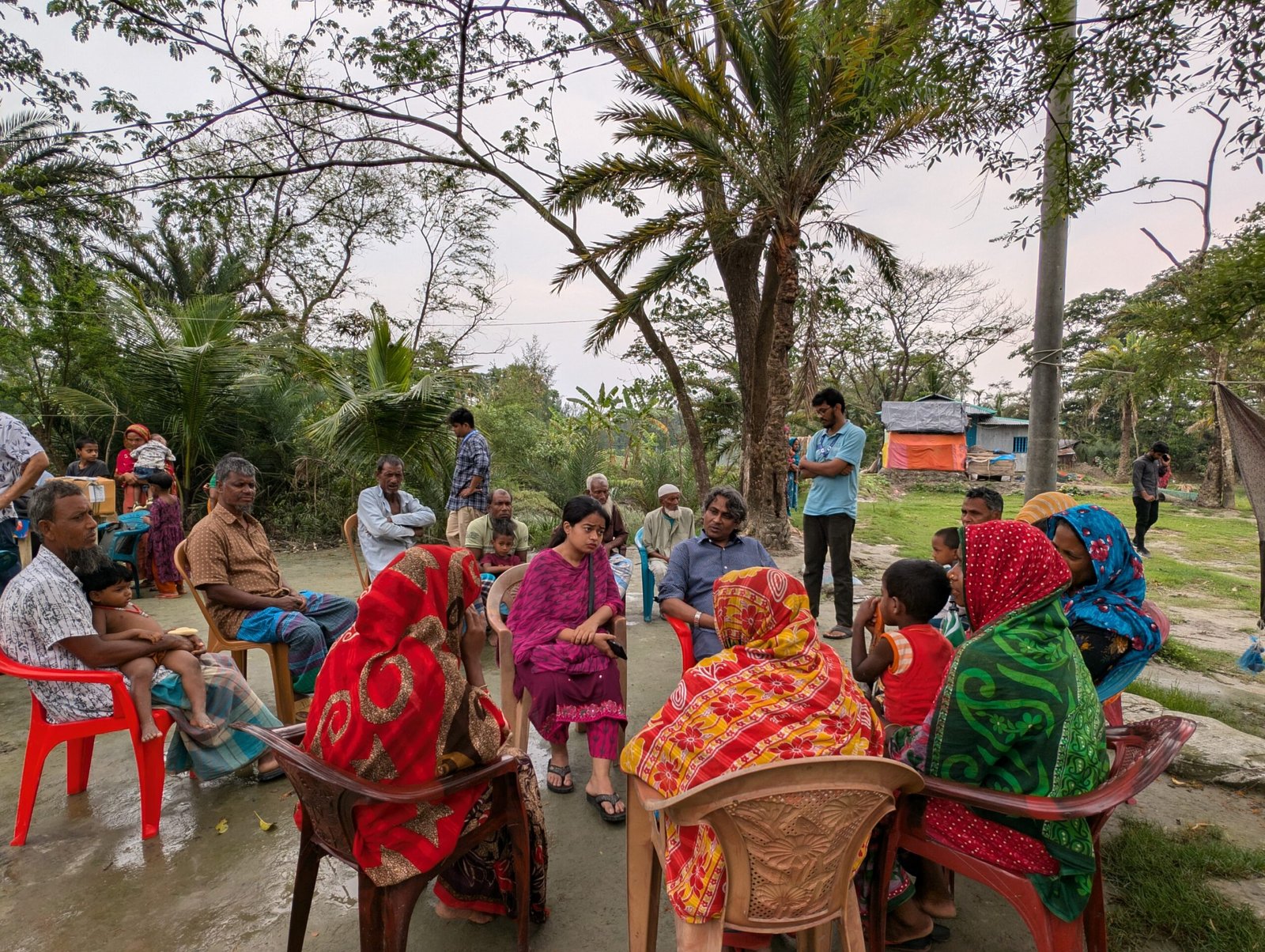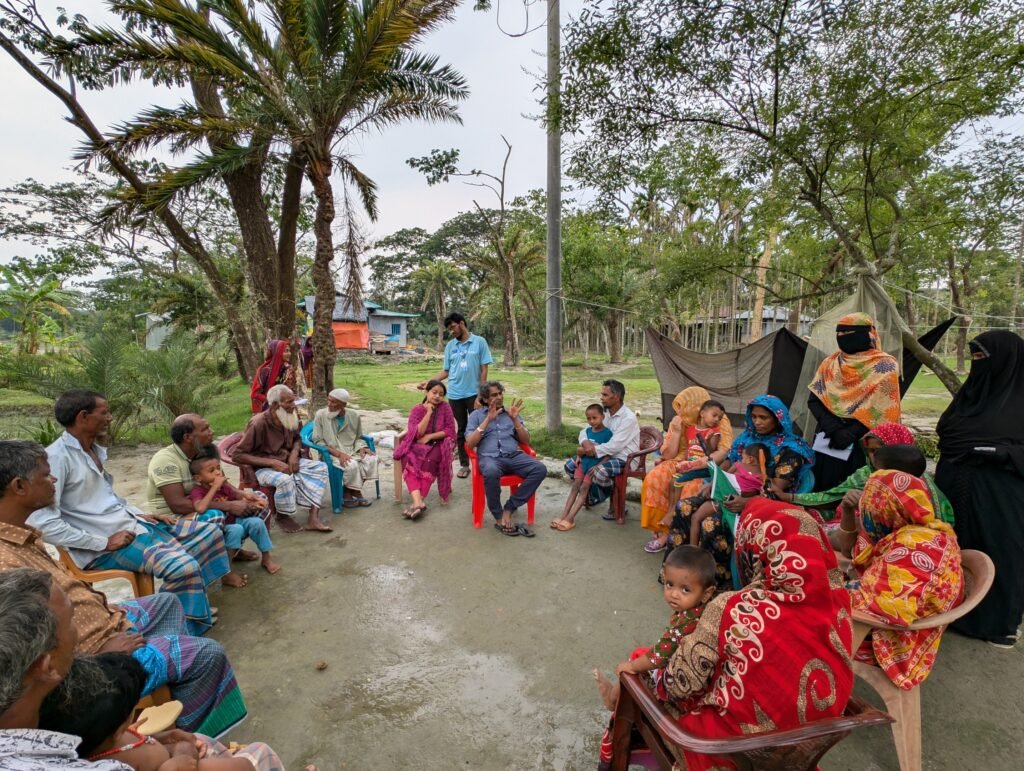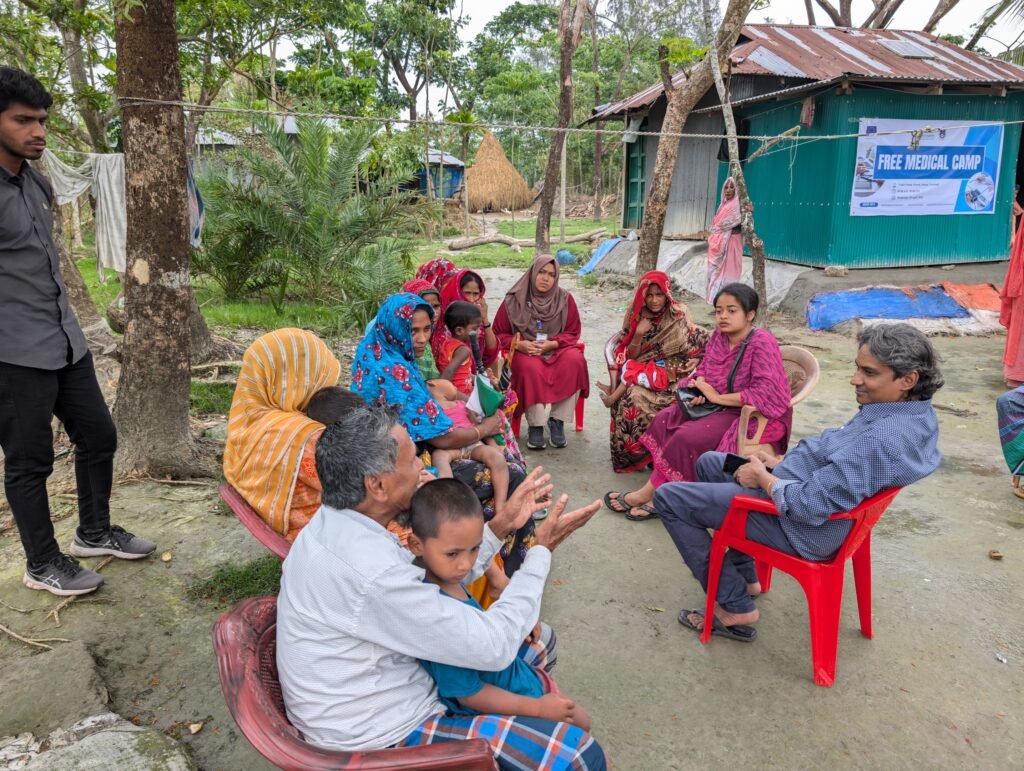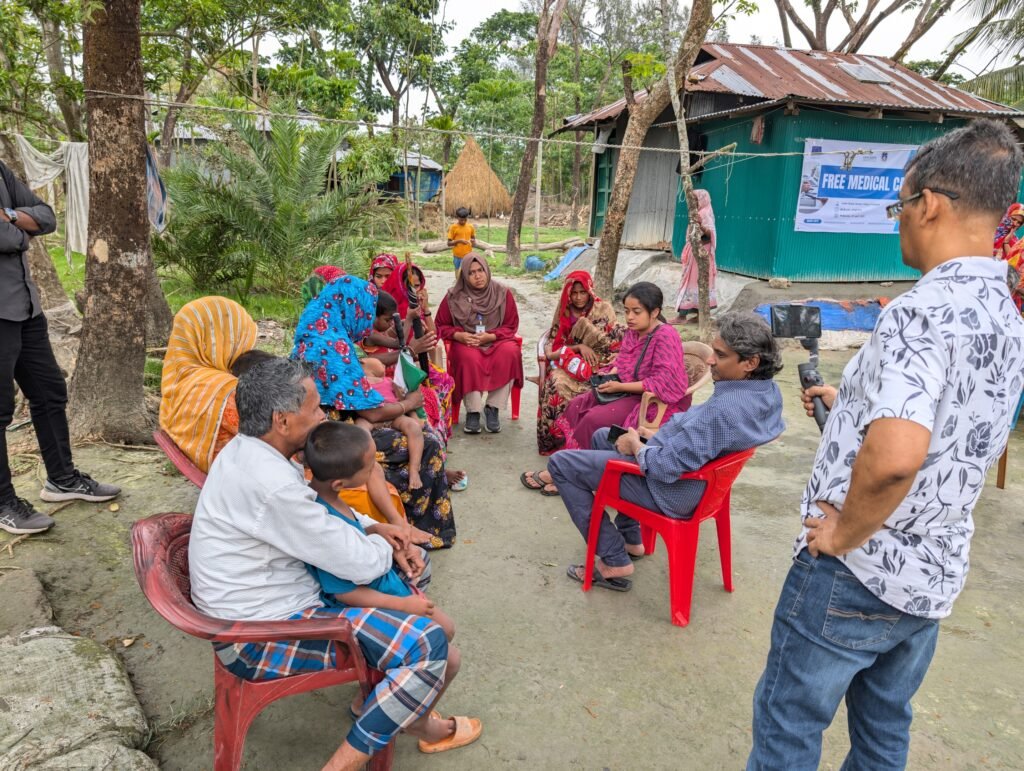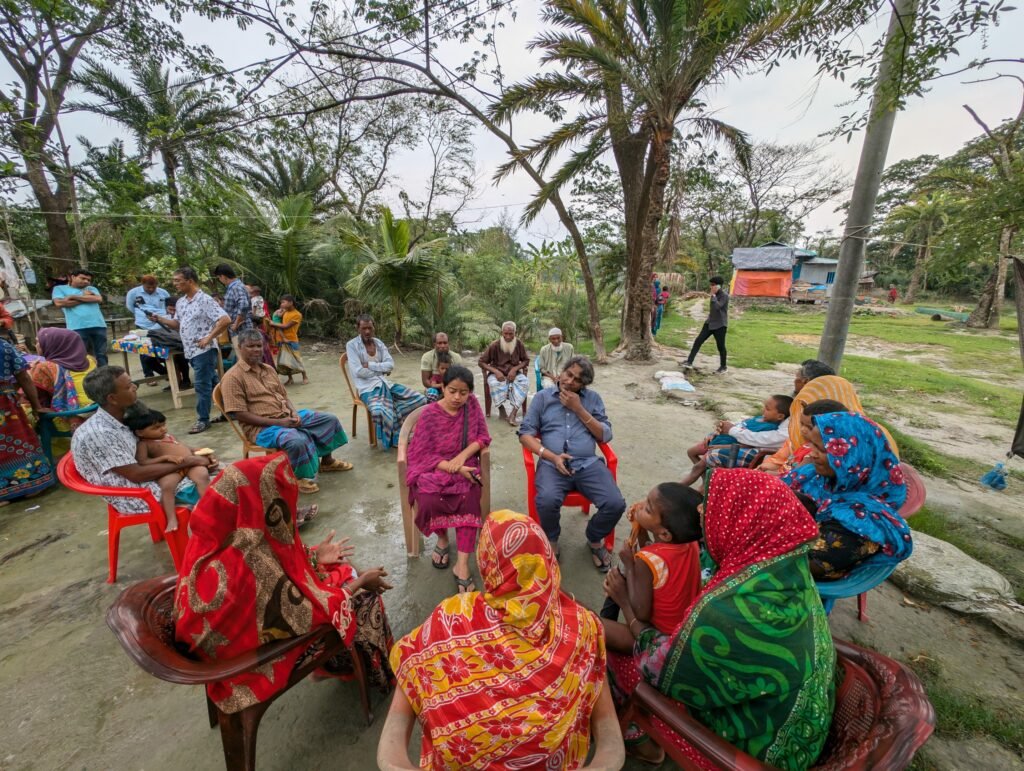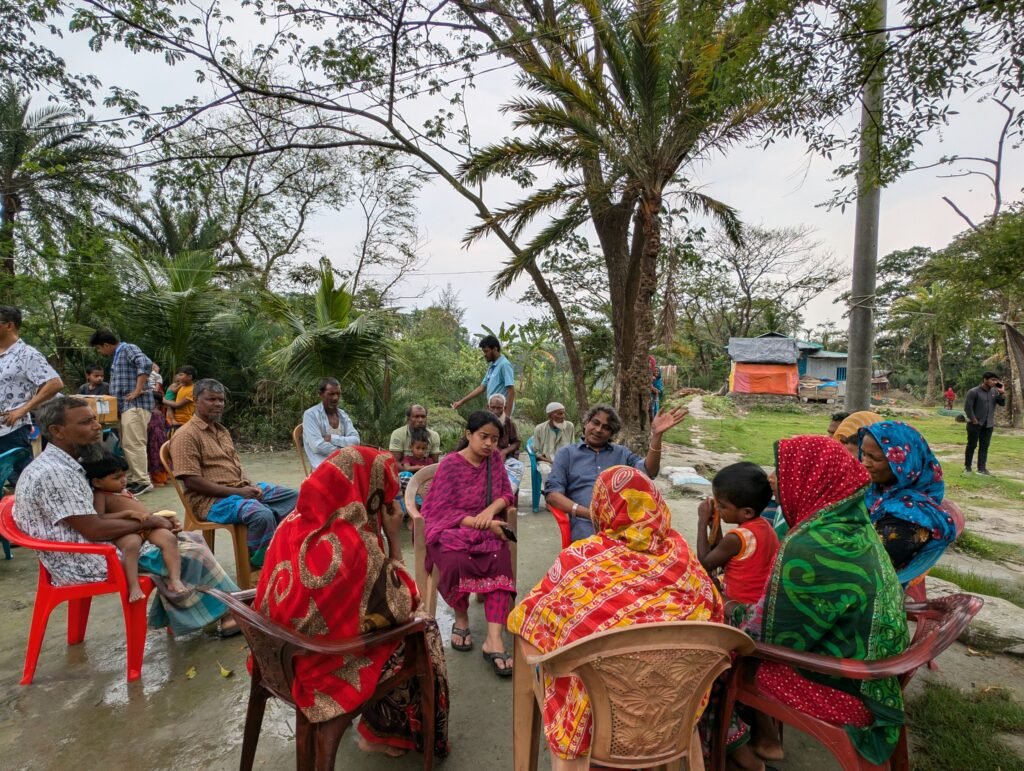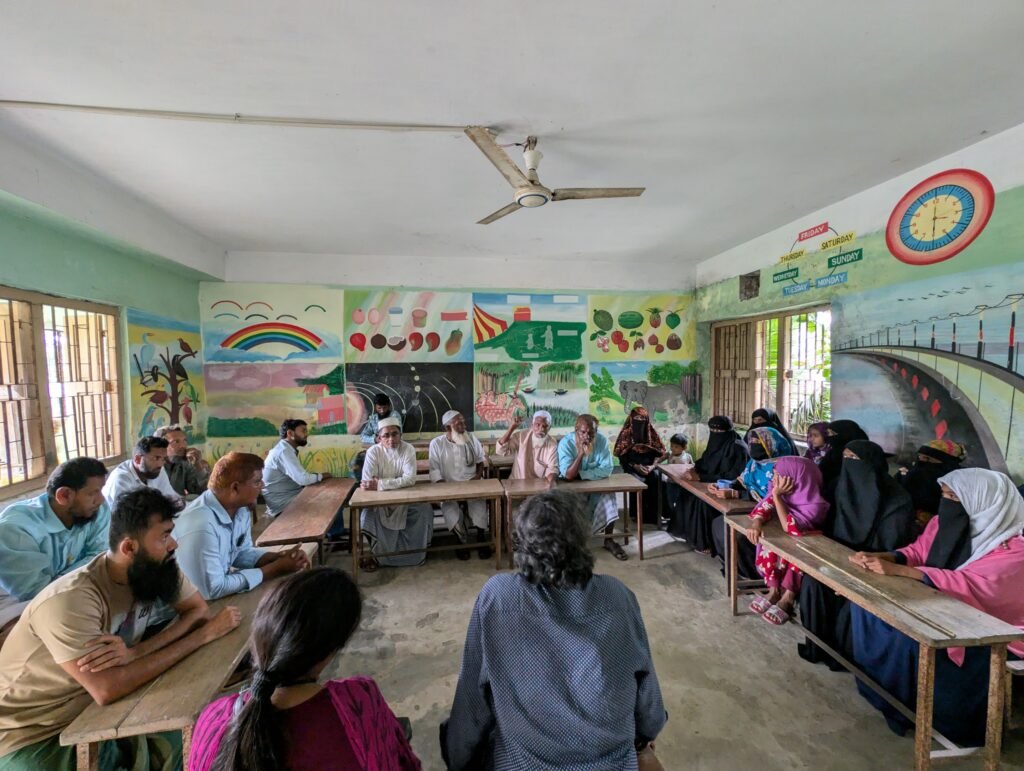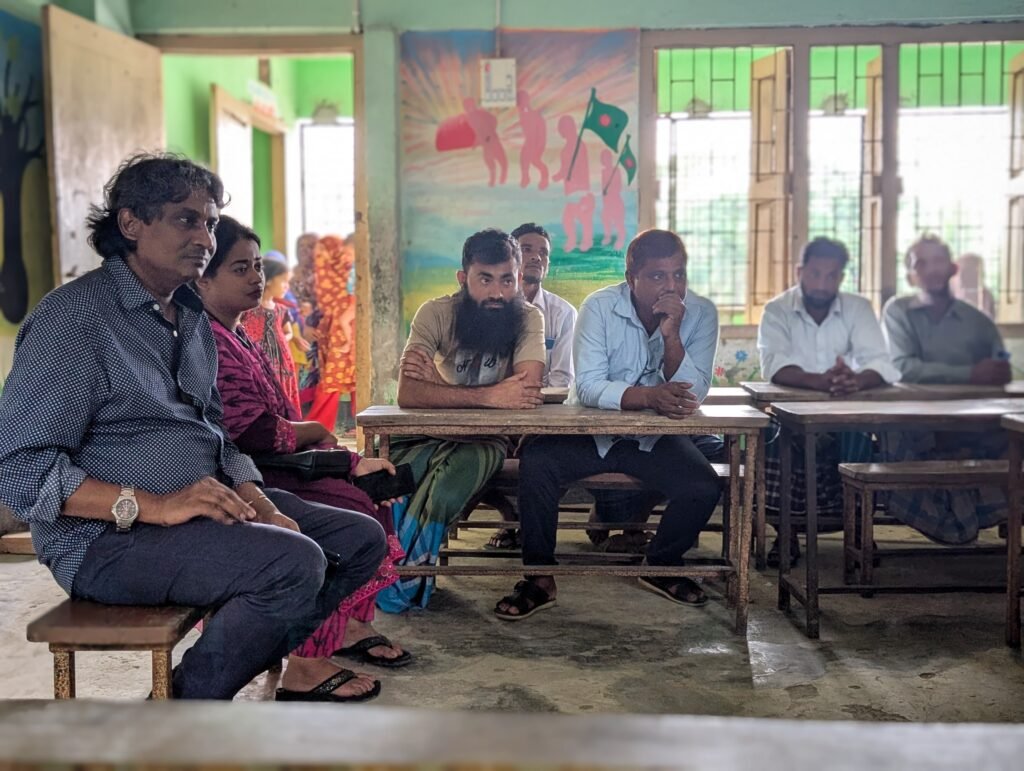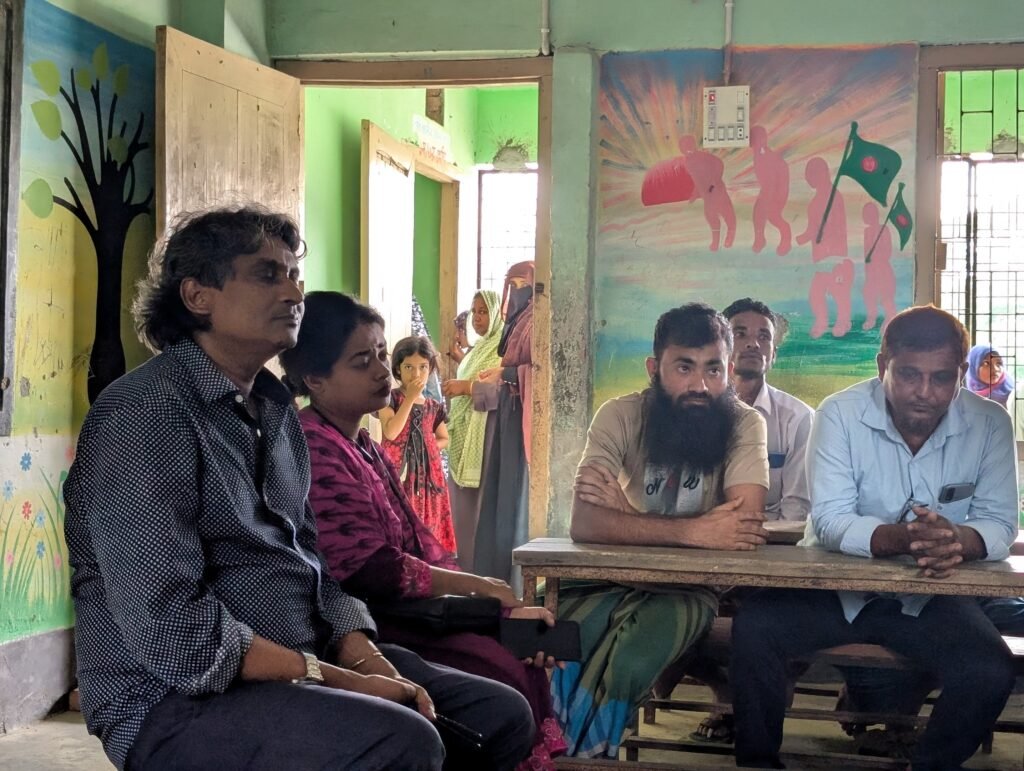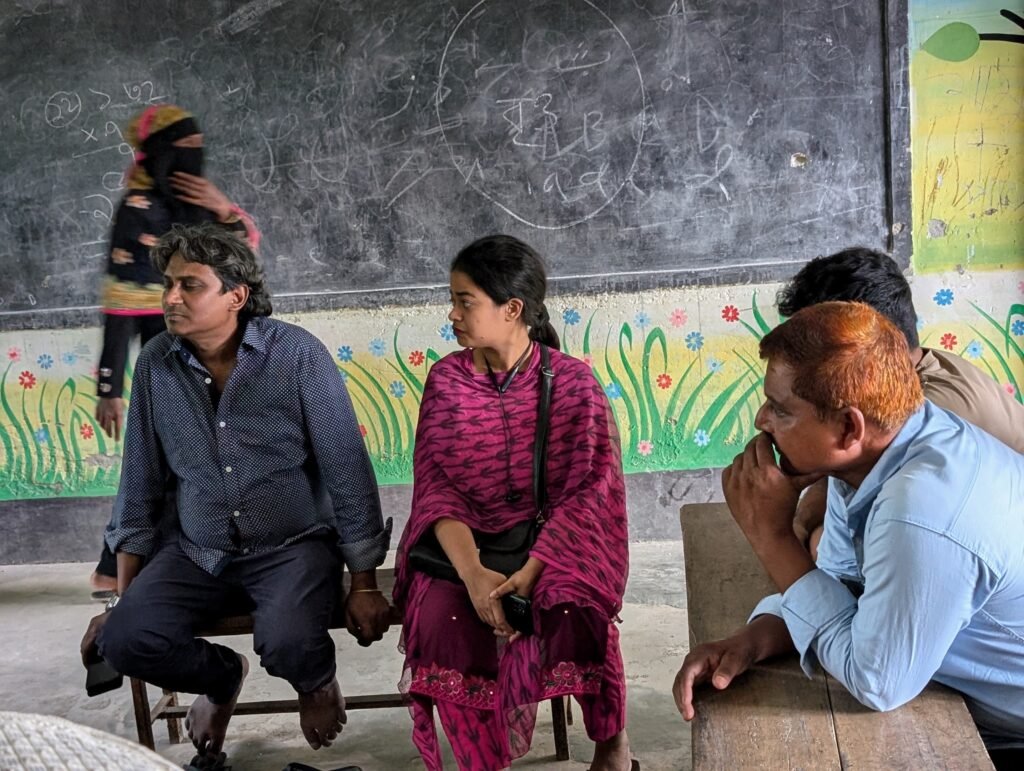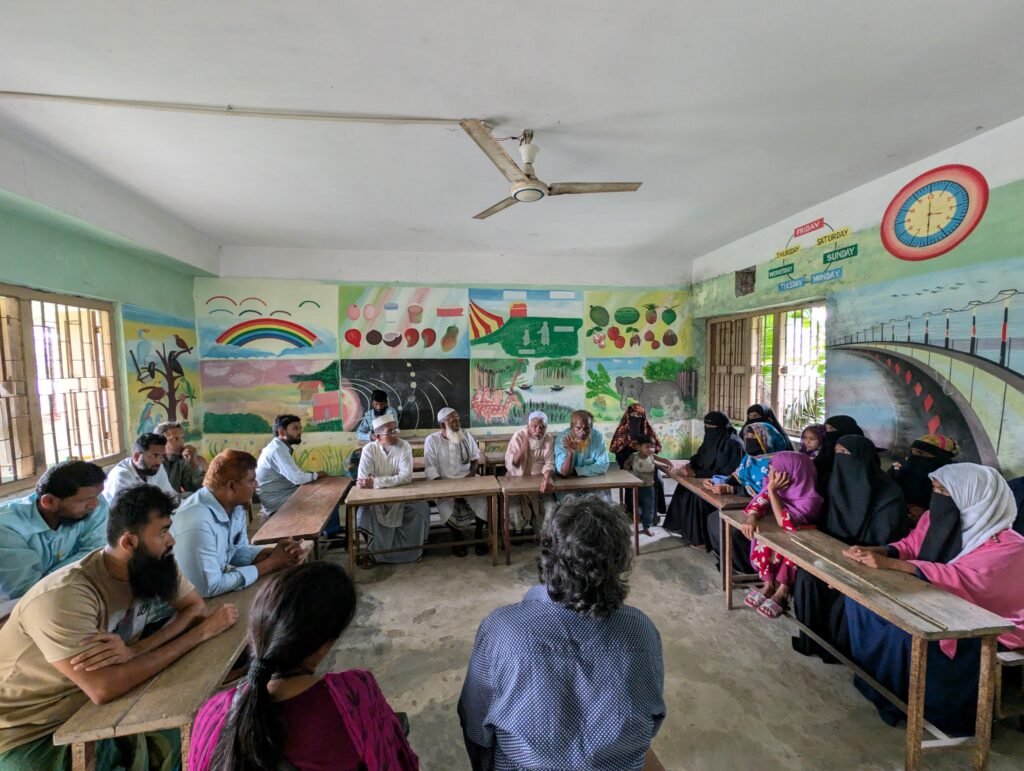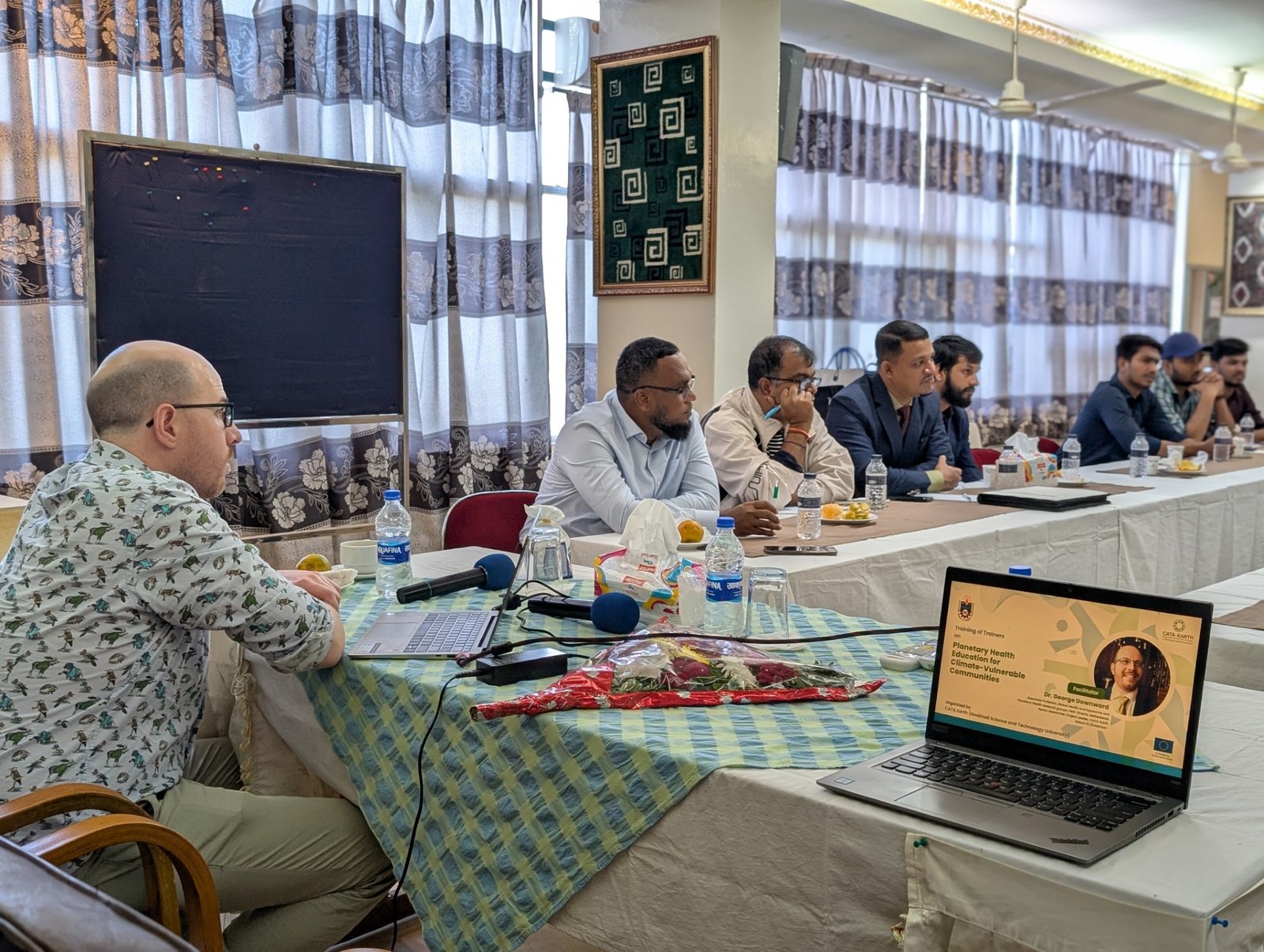As part of the ongoing CATA Earth project, the Noakhali Science and Technology University (NSTU) team recently conducted a series of Focus Group Discussions (FGDs) in Hatiya upazila, aiming to better understand the multifaceted challenges faced by coastal communities.
On April 23, 2025, two FGDs were held—one in Tankir Samaj, and another combining participants from Foraji, Shariatpur, and Centerer Samaj villages. Nearly 50 participants, including farmers, local leaders, women, youth, health workers, teachers, and students, took part in these vibrant discussions.
Salinity is ruining our fields and threatening our food security.
– Local Farmer
Women’s health is at greater risk due to lack of clean water and proper facilities.
– One Local Participant
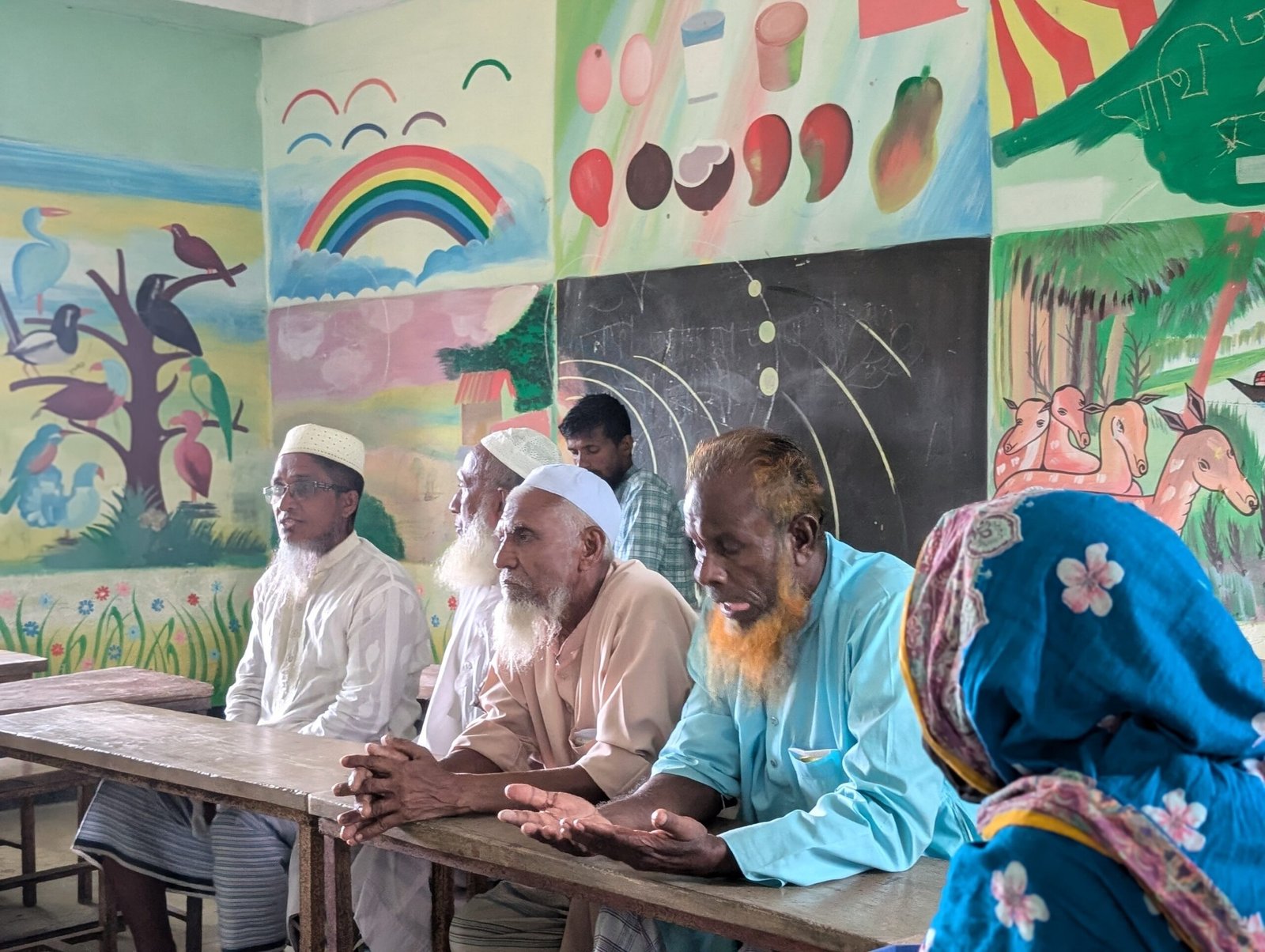
The sessions delved into pressing issues such as physical, reproductive, and mental health, environmental concerns, climate change, disaster risks, agricultural challenges, and the unique adversities of coastal living. Salinity intrusion, tidal inundation, and access to safe drinking water emerged as dominant themes. Participants highlighted the severe impact of saline water on crop lands and the heightened health risks for women. “Salinity is ruining our fields and threatening our food security”, lamented one local farmer, while another participant emphasized, “Women’s health is at greater risk due to lack of clean water and proper facilities.”
The FGDs were attended by Muhammad Abdur Rahaman, Director of the Center for People and Environ (CPE) and Ms. Fahmida Alam Bintu, Academic Coordinator of the CATA Earth project .and Assistant Professor in the Department of Environmental Science and Disaster Management at Noakhali Science and Technology University.
The primary objective of these discussions was to gather community perspectives that will directly inform the development of a tailored Planetary Health education toolkit. The findings will also guide future advocacy efforts and help design effective training on best practices for local residents.
NSTU’s initiative under the CATA Earth project continues to bridge the gap between research and real-world impact, ensuring that the voices of vulnerable communities shape the solutions meant for them.


